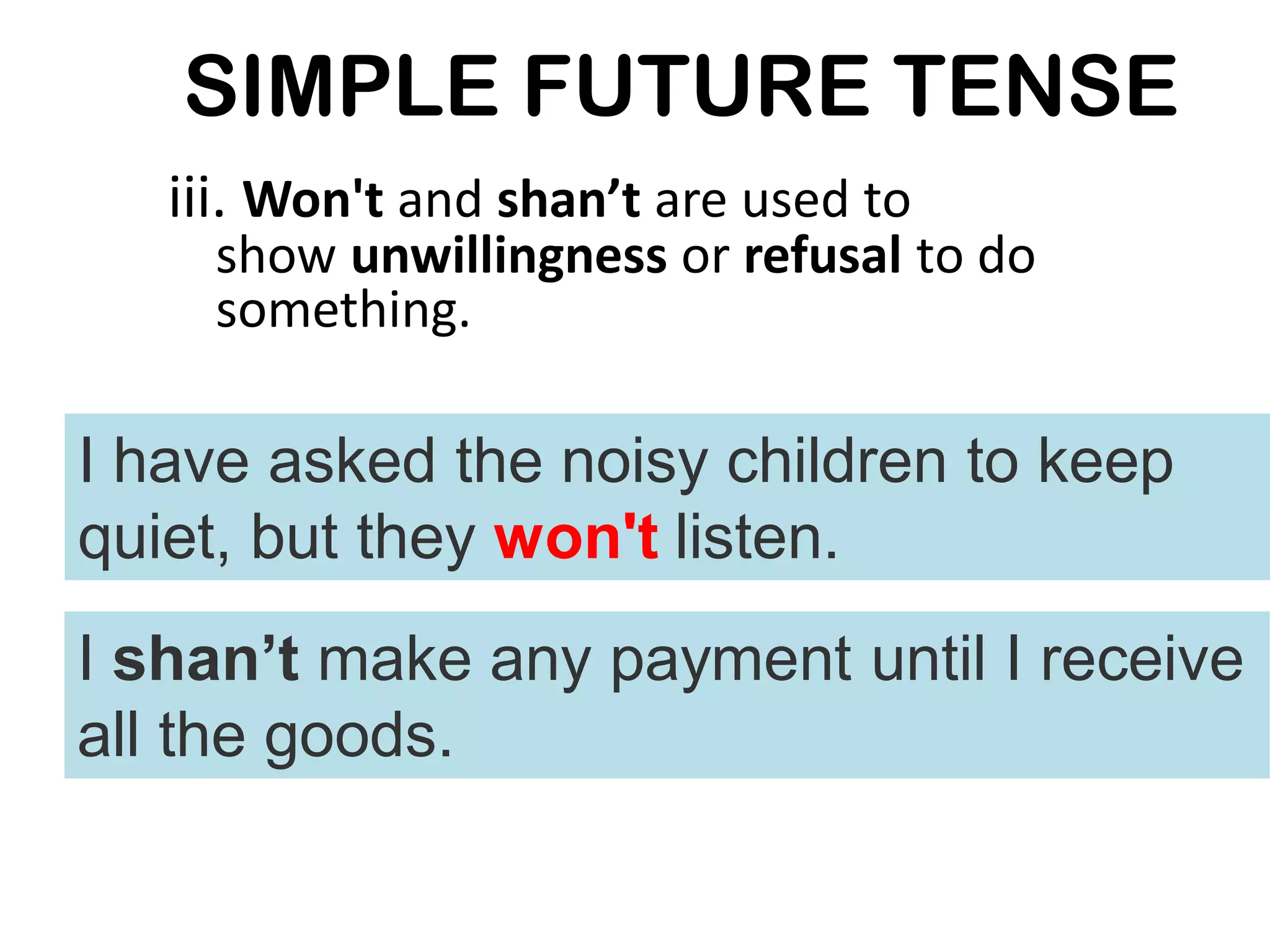The document provides a comprehensive overview of English verb tenses, detailing the simple present, past, and future tenses along with their functions and examples. It explains how verbs change based on time and subject alignment, highlighting different usages such as routines, beliefs, and scheduled events. This resource serves as a guide for understanding the complexities of tense in English grammar.



















































